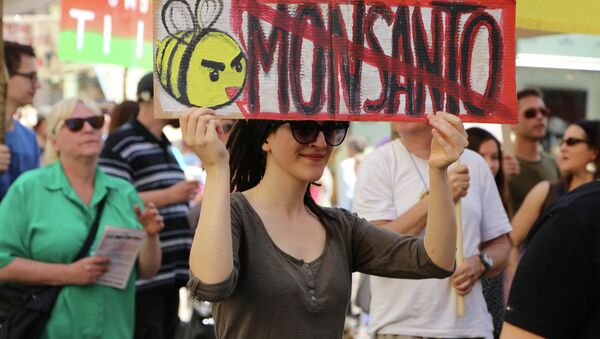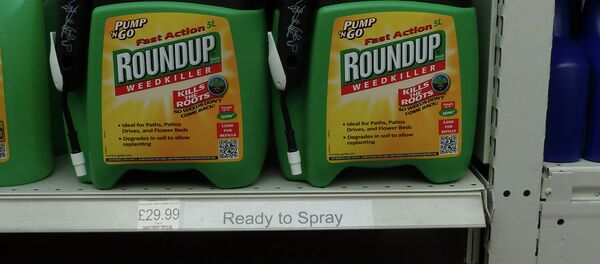The decision by Bayer to make the bid has raised eyebrows in the German media, as Bayer enjoys a good reputation as a chemical company, whereas there is deep skepticism over Monsanto, which promotes generic modification and produces the controversial herbicide Roundup, which contains glyphosate – currently facing an EU-wide ban because of cancer fears.
Anti-Monsanto activists outside EU committee hearing to decide glyphosate approval pic.twitter.com/PTG80dykk8
— Alex Pigman (@AlexRPigman) 18 May 2016
Global Justice Now food campaigner Aisha Dodwell told Sputnik:
"The proposed Bayer bid for Monsanto will have devastating consequences for farmers and consumers across the globe. The creation of a mega-corporation that is both the world's biggest seed and pesticide company means that a single organization will be handed almost total control of our foods, what we eat and how it is grown.
"This should worry all of us as we already know that these agri-businesses use aggressive techniques to further their market dominance which do not act in the best interests of farmers, public health or the environment," Dodwell told Sputnik.
Join us THIS SATURDAY! https://t.co/9ZIRxyIfWQ @monsantotribun @MarchAgainstM #ExposeMonsantosCrimes #MarchMay21 RT! pic.twitter.com/ZNhkdNTPGs
— Organic Consumers (@OrganicConsumer) 18 May 2016
Roundup Ready crop seeds, produced by Monsanto, are resistant to its Roundup herbicide, which means farmers around the world can buy the seeds from Monsanto and then treat them with its own herbicide. More controversial is that the crop seeds are sterile – known as terminator seeds – which means that farmers – often in the poorest areas of the world – have to buy fresh batches from Monsanto each year, rather than taking seeds from the growing crop.
Monsanto is by no means the only agrochemical company in the world to use glyphosate-based herbicides. They are the most-used herbicides in the world. The company says on its website: "Glyphosate inhibits an enzyme that is essential to plant growth; this enzyme is not found in humans or other animals, contributing to the low risk to human health.
"Comprehensive toxicological studies in animals have demonstrated that glyphosate does not cause cancer, birth defects, DNA damage, nervous system effects, immune system effects, endocrine disruption or reproductive problems," Monsanto says.
A decision on whether or not to reapprove the controversial toxic substance glyphosate for use in Europe was postponed at the last European Parliament session in May for the second time, following disagreement among representatives of EU governments.
Green Alliance environment and food safety spokesperson Bart Staes said:
"This latest postponement is a sign that the significant opposition to reapproving glyphosate is being taken seriously by key EU governments. It is clear that the EU Commission and the agro-chemical industry were hell-bent on bulldozing through the approval of glyphosate for unrestricted use for a long timeframe but thankfully this push has been headed off for now."



